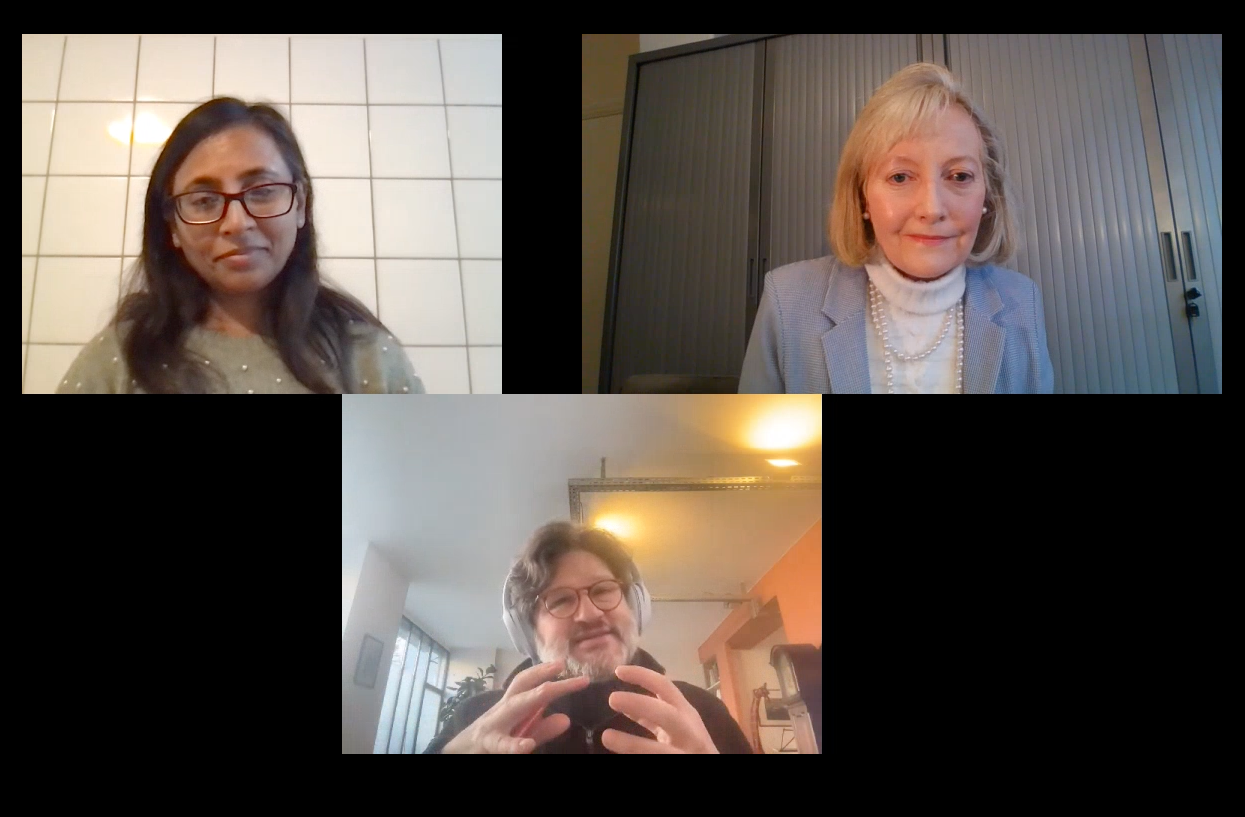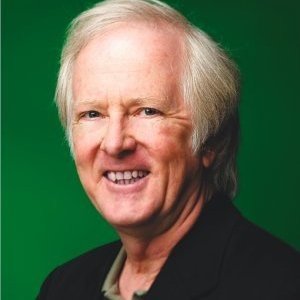A Candid Look at M&E Sustainability Issues Kicks Off Year-Long Expert Webinar Series
By Fred Dawson
The recent opening to a year-long webinar series addressing the media and entertainment industry’s environmental sustainability challenges heralded a much-needed open and frank search for viable solutions among industry competitors, regulators and thought leaders.
Refreshingly, the February 14 kickoff to the Sustainability Experts Series co-produced by Broadcast Projects and CTO Innovation Consulting made clear the intent isn’t to preach about what needs to be done or to tout specific vendor solutions claiming to have greenhouse gas-cutting allure. Instead, the discussion reflected a no-BS approach to fleshing out the complexities and sharing insights about how to get to greener ground.“We can’t do sustainability on our own,” noted Eileen Duggan, a featured speaker who serves as sustainability and environment manager at Ireland’s national broadcaster RTÉ. “We have to do it as a group…It’s extremely helpful to have collaboration within the industry.”
There will be a lot on the table as the series unfolds. “This is a very complex topic,” said Hemini Mehta, the other featured speaker, who serves as sustainability lead for the European Broadcasting Union. “The more you delve into it, the more you realize the complexities of it.”
Some Progress on an Expanding To-Do List
Over the course of the next year on the second Tuesday of each month, two-hour sessions featuring expert speakers followed by open discussion among attendees will drill down on a multitude of topics associated with those complexities. The opening webinar brought to light both how far the industry has come in understanding sustainability requires broad collaboration and how far it has to go in formulating and executing effective policies with commonly accepted ways to measure meaningful progress.
Mehta’s comments illuminated both ends of the good news/bad news spectrum. She noted progress in collaboration was on display at last year’s EBU sustainability conference, where a panel session highlighting results from an English Premier League carbon “net zero” production workflow trial featured speakers from the BBC and Sky.
“That was actually a joint presentation between BBC and Sky, which, in other cases, would never happen,” she said. But she also noted that jobs like hers were a testament to how far the industry has to go before sustainability is ingrained as a routine component of everyone’s operations.
Adherence to green principles should be “so integrated in people’s roles that there’s no need for a whole [sustainability] department,” Mehta said. “That’s my hope. My role won’t be needed.”
Duggan noted that significant progress is being made through the examples set by companies pursuing effective sustainability policies. She cited RTÉ’s commitment to more energy-efficient approaches to production of its programs as a case in point.
From top Left: Hemini Mehta (EBU). Eileen Duggan (RTÉ), Benjamin Schwarz (CToIC Consulting)
“Now we’re in a position where we can actually say our programs are being made sustainably,” Duggan said. By generating metrics showing what has been achieved, RTÉ has created a yardstick that gets people to “think more about sustainability in the planning of their programs.”
But there was no reticence about all that needs to be done. Speakers and attendees brought to light a broad range of critical issues that defy easy answers.
The Equipment Replacement Conundrum
For example, there was a lengthy discussion having to do with the tradeoffs that come with replacing older equipment with more energy-efficient gear. Is it better to allow older equipment that might be less energy efficient than newer equipment to remain in operation, thereby avoiding adding to energy costs that come with the manufacture of new applicances? Or should companies capture the energy savings delivered by new equipment ASAP?
One participant noted research findings that showed companies operating in a country where low-efficiency datacenters are the norm would cause less environmental harm by buying servers that perform at 40% greater efficiency as early as three years after installing older equipment. In contrast, companies in a country with infrastructure operating at a relatively high rate of energy efficiency might need to wait as long as 30 years into the current generation lifespan before converting to higher efficiency replacements.
“Things get stupidly complicated when you have to decide whether legacy kit should be sustained or replaced,” noted hour two moderator Jonathan Van de Velde, who is the program and communications director for the Belgian media non-profit MediaNet Vlaanderen, “At which point should that transition be made? There’s little clarity.”
But broader thinking about what goes into the sustainability calculus can make things easier, observed green tech startup consultant Trees De Bruyne, a participant in the second hour discussion. “It’s not that hard to make the right choices,” she said. “It’s just the methodology that’s lacking.”
De Bruyne cited the example of a Japanese media firm which, in converting from paper to digital products, chose to use the heat generated in digital processing to grow food for a new business venture. “Their business model is now more focused on getting turnover in the sales of food versus sales of newspapers and magazines,” she said.
“We should look at the complete holistic impact on energy consumption,” she added. “What are we doing [that leads] to creating new devices and what do we do with them at the end of life? That’s a better perspective on decision making than just focusing on energy and CO2 [metrics at the time of purchase].”
Another thing to keep in mind is the need to be specific in assigning responsibilities for attaining sustainability goals, Van de Velde noted. Some organizations “make everything everyone’s responsibility,” he said. “If you do that, then at the micromanaged level everything becomes someone else’s responsibility. So I think setting achievable targets is very important.”
Sustainability Challenges in Advertising
The multifaceted ways in which advertising impacts on sustainability was another topic of wide concern during the webinar. One line of discussion focused on the need to curb promotion of fossil fuels or other products counter to green objectives. The consensus seemed to be this is a hot potato best left to regulators, though it might be worth a deeper discussion in a future webinar.
“The broadcast authority of Ireland would cover advertising,” Duggan said. “Our sales people would be following its directives.” However, she added, “I do think it’s an area that’s very interesting. It might be interesting to bring somebody from a sales background to talk to us.”
Another strand in the advertising discussion had to do with the impact of ad targeting, especially in the operation of free ad-supported streaming (FAST) services, which have become a major factor in the over-the-top (OTT) video marketplace over the past two years. A tremendous amount of energy-consuming processing goes into placing and delivering ads uniquely targeted to individual users.
No one offered an answer to this challenge, although general discussion about new generations of high efficiency computer processors pointed to hope for some improvements. But it was noted that data published in the Netherlands showed public broadcaster NPO experienced a significant surge in ad revenue in 2020 when it abandoned targeted advertising in favor of placing ads relevant to the context of its programming.
Investment Incentives toward Sustainability
Webinar participants also discussed incentives toward sustainability that investors might implement to induce companies seeking funding to adopt energy-saving policies. One idea posited in the discussion would be for investors to shave a half point off the interest a borrower meeting green requirements would pay compared to what would be paid by those who don’t. Or interest penalties could be imposed when borrowers fail to live up to green commitments.
Participants, most of them Europe-based, also raised the question of whether the types of regulations the EU, individual countries and other policy makers are implementing constitute a better approach to achieving sustainability than the laissez faire approach in the U.S. and elsewhere that allows the sustainability pace to be set by the marketplace. Opening session moderator Benjamin Schwarz, founder and principal of CTO Innovation Consulting, noted someone speaking at a recent sustainability webinar suggested the wait for anticipated regulations to kick in impedes individual company initiatives that might otherwise get underway on their own.
“There will be those who say, ‘I’m not changing until I’m forced to do it,’” responded Hemini Mehta. “And others will do it [on their own].” In that regard, she said, there’s no difference between people in the U.S. and Europe.
But “there are things that regulators and government need to do in order to make things work, and things organizations have to do to make things work. And things individuals need to do. It’s everybody’s responsibility. We need all the layers to work.”
A Dynamic Approach to Shaping the Series Agenda
The wide-ranging discussion raised many topics that are likely to be explored at greater depth as the series unfolds. Schwartz enumerated what’s in store for the next two sessions and suggested others that are likely to be included down the road.
And, as Van de Velde noted, agenda planning will be responsive to other ideas that come up along the way. “This is not a program that is already set in stone,” he said. “It’s a subject that’s very quickly evolving.”
Schwartz said the next event, slated for March 14, will look at the United Nations’ 17 sustainability goals and how they can be applied to the media industry. The April conclave will feature expert opinion from author and podcaster Gerry McGovern on energy waste and data problems specific to the industry with discussion revolving around best approaches to ameliorating these issues.
Other potential topics mentioned by Schwartz included:
Energy inefficiencies built into how software design has evolved and what can be done to reverse the trend.
How machine learning and other advances in video processing can be applied to lower bandwidth consumption without increasing energy consumption.
Exploring what can be done to direct consumers toward greater energy efficiency in the use of their devices.
Device design improvements that can lead to lower energy consumption.
Energy-saving approaches in the use of streaming technology.
Media economics polices that can be applied to counter the impact of the Jevons Paradox, where energy efficiency gains result in higher energy consumption through increased resource usage.
Discussing what, if anything, should be done about “greenwashing,” where policies seen as window dressing in companies’ efforts to burnish their green images mask policies that run counter to sustainability.
The impact of FAST business model on sustainability and whether steps should be taken to curtail that impact.
According to Broadcast Projects executive producer Janet Greco, there is no charge for attending the Sustainability Experts Series, which is platformed by Media Meet & Greet Connect 365. She said access is available through this signup page.


